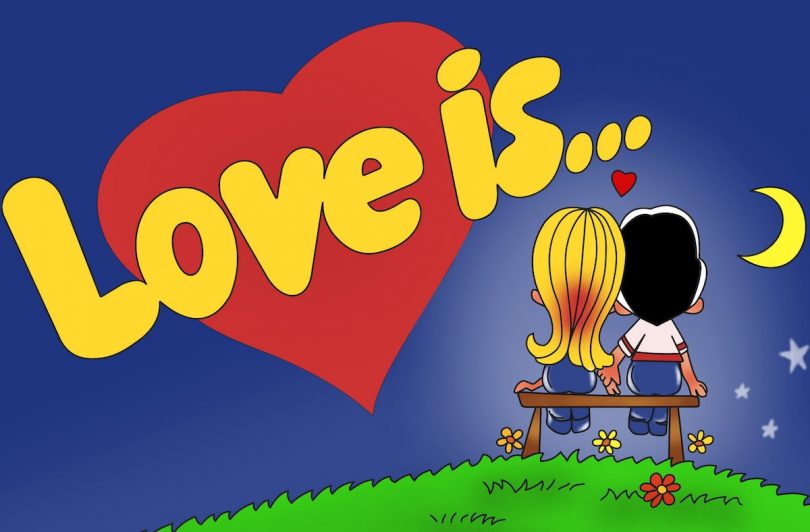Table of Contents
Whether it’s a $1 Valentine’s Day card we got in the 6th grade or vows spoken under an altar while staring into a lover’s eyes, we have all felt the warm rush of love. Some people believe it is a divine blessing from Heaven itself, and others call it a rush of chemicals within the brain no different from hunger or sleep.
Whichever side you take, love does have specific effects on brain chemistry. New advances in science have allowed researchers to map and measure these changes carefully. Maybe someday we’ll be able to pinpoint the exact formula of what we call love. Perhaps ultimately, we would have a reasonable explanation for why we feel the things we think when we fall in love.
Until then, we have to rely on the few things we know about love and the changes it brings about to our brain chemistry. Here’s a look at a few ways love affects your brain:
Stimulates a rush of happy hormones
A common sign that a person is in love with another person is that they seem so annoyingly happy all the time. They seem so chirpy, walking around whistling their favorite tune and making everyone else look downright depressed. The good news is that this stage will eventually pass. I’m not saying they’ll fall out of love, but instead, they become less sensitive to the love hormone.
Dopamine is a hormone in the brain that causes a feeling of euphoria. If the name sounds familiar, then you’re right. Dopamine is the same hormone that gives cocaine its signature high.
So yes, falling in love can feel just as good as taking cocaine.
You can get hooked on the feeling.
Remember dopamine, yeah, the hormone your brain produces when you’re in love and also when you’re high on drugs. Well, besides being the secret behind the feeling of euphoria you get from cocaine, it has another function. It’s the reason people get addicted to cocaine.
After prolonged exposure to the hormone for an extended period, the brain adapts to the situation by producing less of it. Therefore, to stay happy, addicts need to take more drugs.
The same thing happens with people newly in love. It gets to the point that they can no longer feel happy unless they are around their source of attraction. As scary as that sounds, the feeling usually fades with time.
It can mimic an OCD
One of the telltale signs of someone who has an Obsessive-Compulsive Disorder (OCD) is a sudden fall in serotonin levels. Serotonin is a complex hormone that has numerous functions in the brain. Normal levels of serotonin are required for maintaining mental health, and serotonin imbalances are seen in conditions such as depression, anger, and so on.
This may explain why it seems like people newly in love are so hooked to one another. They only want to talk about things concerning their loved ones. They seem to be able to relate any random detail to a story or quality about the one they love.
Bonds you to your partner
Dopamine isn’t the only happy chemical in the brain. There’s another crucial hormone that mediates happiness and attachment called oxytocin. This is the hormone mainly responsible for mother-child bonding. It is released in large amounts when people are in love and can be elevated far longer than dopamine.
While elevated dopamine levels give that intense feeling of euphoria, oxytocin is a more subtle worker. It builds feelings of attachment, protection, and calm. This is the reason why couples who have been together for longer syncs and remain calm around themselves. This happens even when the initial thrill has passed.
Poor decision making
If you have ever tried to advise someone in love, you will know they are not the best at decision making. They can ignore glaring faults and undesirable qualities in the one they love. Only good traits seem to register with them. Even when they know it is terrible for them, they can’t seem to help themselves.
Being in love is intoxicating, every bit as much as alcohol. Research has found that individuals who are in love have a less cognitive function, meaning that their decision making and critical thinking skills are noticeably reduced.
The funny thing is that this may extend to things outside their significant others. No wonder young hot-blooded princes in love have started so many wars.
Reduced attention span
It is funny how love seems to change even the most down-to-earth individual into a star-struck dreamer. Always staring off into space, dreaming up thousands of scenarios. We all tend to drift off into space, especially when our minds are less occupied. However, those in love are even more likely to do this.
Weirdly, they can drift off even in the middle of significant activities like driving, exams, even in the middle of conversations. Hopefully, this feeling of walking on clouds is only temporary, and they will soon come back down to earth.
Increased empathy
As we all know, not all things about falling in love are bad. There are good sides too. Due to some of the changes which take place in their brain chemistry, people who are in love are much more empathic and caring than the general population. The part of the human brain involved in emotional processing is much more active in them.
Also, the parts of the brain concerned with self-preservation and selfishness seem to be suppressed. This is not surprising as it looks like people in love think more about the happiness and well-being of their significant other over their own. This manifests in their relationship or interaction with other people.
Love can be an intoxicating experience and makes you feel a little bit crazy. However, there is nothing to fear, enjoy the ride, and be as happy as you can be. It is a rare gift to truly love and be loved in return, who cares if it drives you nuts in the process.
If you have a news tip, correction or comment, let us know at: [email protected]







